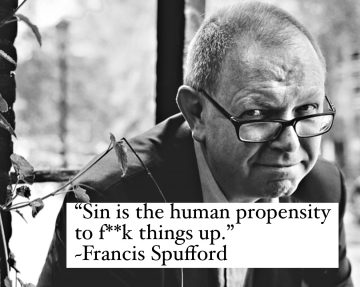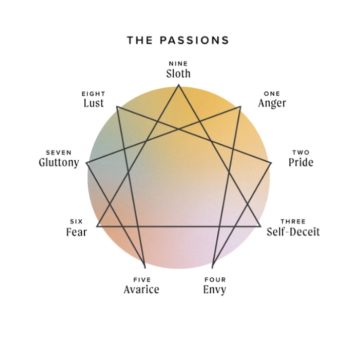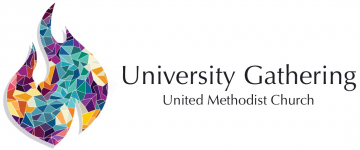Our Propensity to Mess Things Up

Kindred in Christ,
The Lenten season invites us to reflect on the sin that still secretly lurks in our hearts, which is anything within us that seeks to resist God’s love and justice for us or for others. And one of my favorite thinkers on this topic is the English novelist Francis Spufford who suggests that sin is our human propensity to f**k things up. (Read more of his reflection HERE.)
After making a regrettable decision or acting in ways that we know go against God’s coming kin-dom of peace, you too may have found yourself saying, “I do not understand what I do! For what I want to do, I do not do, but what I hate I do” (Romans 7:14-21). It is likely that we have all resonated with the Apostle Paul’s words at one point or another as we reflect on our human propensity to mess things up.
The personality typing tool of the Enneagram offers us a way to reflect on this propensity and map out a way to return to our rest in God. As we have mentioned throughout our series, the Enneagram is influenced by the ancient church’s concept of the 7 deadly sins (two more were added so nobody is left out). See below:

In the above graphic, as well as in the book The Sacred Enneagram, Christopher Heuertz writes that it is better to think of these as Passions rather than strictly “sins.” While each Passion can certainly lead to sin, in the original Latin, passion means “suffering” or “enduring.” The Enneagram suggests that under stress or unresolved trauma or other issues, we each decelerate into our passions even to the point of losing ourselves—thus becoming sin.
Heuertz suggests that when we are going on our journey to find ourselves back into our rest in God, it is like fumbling in the dark. It is hard. We cannot find our way. And he says, when we start to recognize the “whys,” when we ask why we have these passions and why are we acting on these passions to unhealthy degrees, then the “why” becomes a flashlight back to our true selves.
Join us this Sunday as we reflect further on our propensity to mess things up, and how we can journey back toward personal and collective healing.
Alongside you,
Rev. Paul Ortiz
